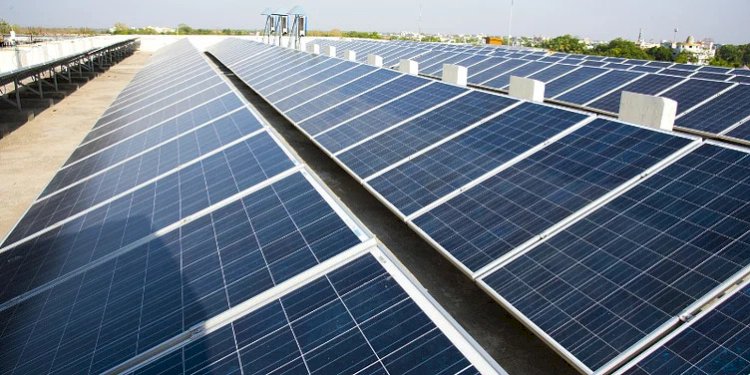How Welfund, a climate-tech startup, is encouraging effective solar adoption in India
Welfund, a Chennai-based climate tech startup, is developing a digital market model to help customers gain access to affordable financing for rooftop solar projects.
By Ishika Rastogi

India will rank fourth globally in solar power generation in 2021. Consistent with the India Brand Equity Foundation (IBEF), the country’s solar energy potential increased from 2.63 GW in March 2014 to 49.3 GW through the end of 2021.
Big solar projects may be under way, but the residential and small business segments frequently stumble upon challenges, such as the non-availability of low-priced financing options to set up rooftop solar installations.
Chennai-headquartered Welfund has created a digital market to bring together all of the stakeholders—financial institutions, engineering, procurement, and construction (EPC) companies, and customers—to allow simpler installation of rooftop solar projects.
The climate-tech startup was founded in May this year by Shankar Sivan, an IIM Indore alumnus. In India, Welfund is currently working on 159 MW of rooftop solar projects worth Rs 765 crore.
The startup raised an angel round of funding from Refex Capital this year. Before founding Welfund, Shankar was closely associated with methods and operations at SunEdison, a US-based rooftop solar company.
Shankar realised, based on his firsthand experience in the solar energy industry, that the residential and small business segments were not making much progress in harnessing solar energy, which reduces power bills and contributes to a greener environment.

Obstacles on the way
According to Shankar, the two main reasons for the slow adoption of solar energy are a lack of enabling rules by state governments and a lack of low-cost financing for such projects. "The interest rate on a loan for rooftop solar projects for any residentially complicated or small commercial enterprise is within the range of 18–20%, which is much higher than an average home mortgage," he says.
Financial institutions no longer have the provisions to underwrite dispensed rooftop solar projects, and even if they furnished the loan, it might fall below the category of unsecured enterprise loans, thereby attracting higher interest charges. Very few financial institutions offer loans for rooftop solar projects, and the duration of repayment is very restricted (usually about 4 years).
However, EPC players are unwilling to cater to a smaller allotted segment because the economics of the lead era no longer favour them. Solar EPC companies typically assist their customers in obtaining loans.
Marketplace model
Given these demanding situations, Welfund has created a marketplace model that connects these kinds of stakeholders, in which everyone benefits. Purchasers, consisting of residence owners and small corporations, can add requirements on the website, and Welfund offers financing alternatives at interest rates equal to those of a home loan. Financial institutions like banks and NBFCs additionally get access to a large consumer base through Welfund, which verifies their requirements as well.
EPCs are furnished with job contracts to set up these rooftop solar projects. "We principally onboard customers digitally, and we also support financial institutions in engaging in investments such as solar projects," Shankar explains. Welfund is now nearing the signing of partnerships with five financial institutions.
It is processing approximately 85 loan applications at present. In addition, the startup has established a network of over 200 EPCs, with 48 of them registering on the platform. Welfund provides asset management and maintenance services for solar projects and ensures a buyback facility in case they become non-performing assets. The climatetech startup is currently onboarding customers via the EPC channel.
Alan Babu, the managing partner at SmartSolar Homes, says, "With Welfund as our companion, our leads-to-income conversion has gone up from 1.5% to 5%." "We're extra confident in our sales pitch as we realise Welfund will facilitate lower-priced loan offers." Welfund currently has a team of about five people.
In keeping with the corporation, it has no direct competitors in this section, and other loan marketplaces generally provide financing for enterprise loans or have boutique investment bankers present financing services for large solar energy projects. business and the way ahead The startup works on a business model in which it gets a positive percentage as service charges from the customers at the successful closure of each loan. It has yet to register revenue. "Our primary goal through financing is to expand the use of such sustainable properties," Shankar says.
As part of its future plans, Welfund plans to enter the marketplace for solar water pumps, frequently used in the agriculture sector. It is also eyeing the energy tracking segment.
What's Your Reaction?



















